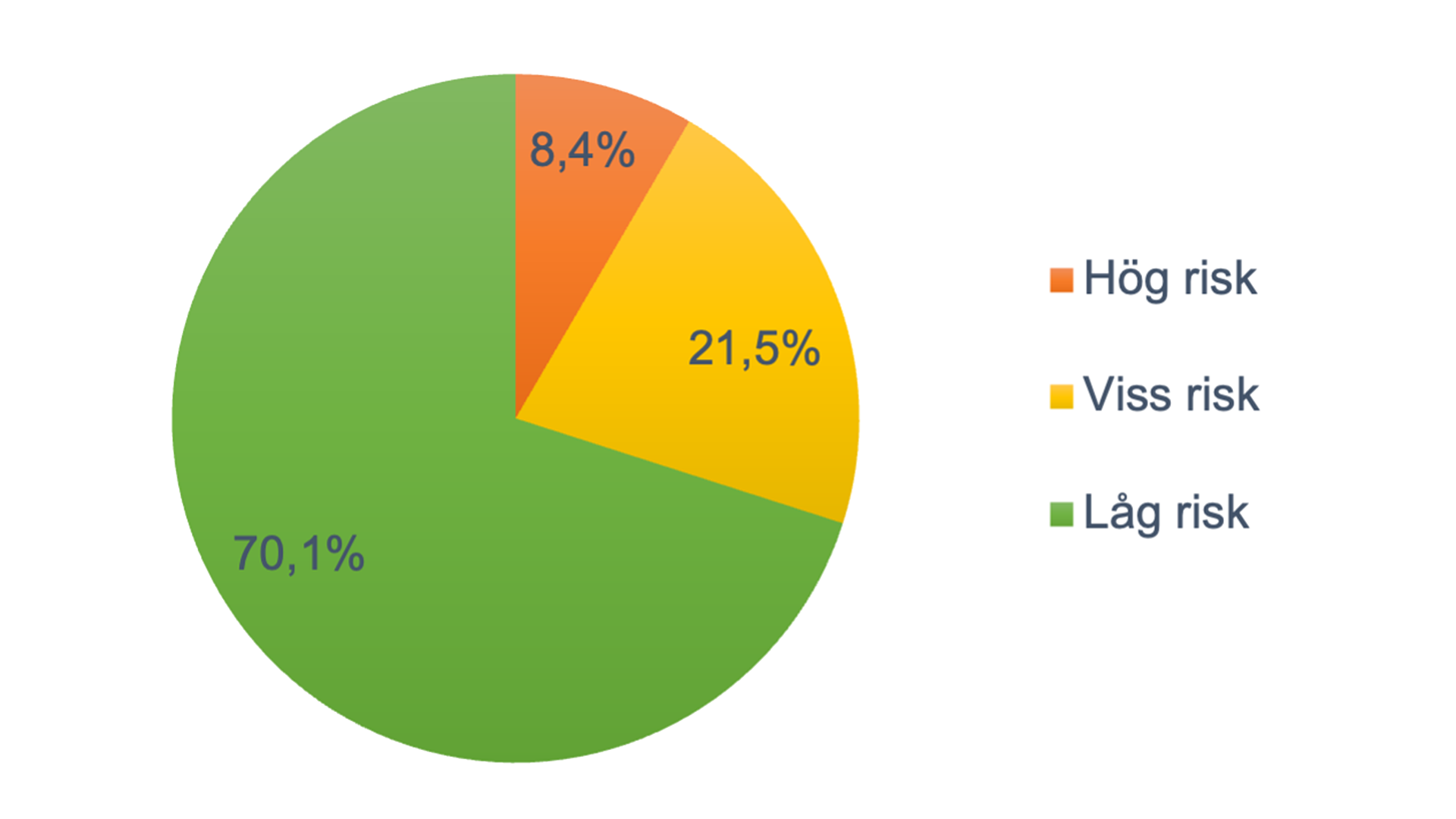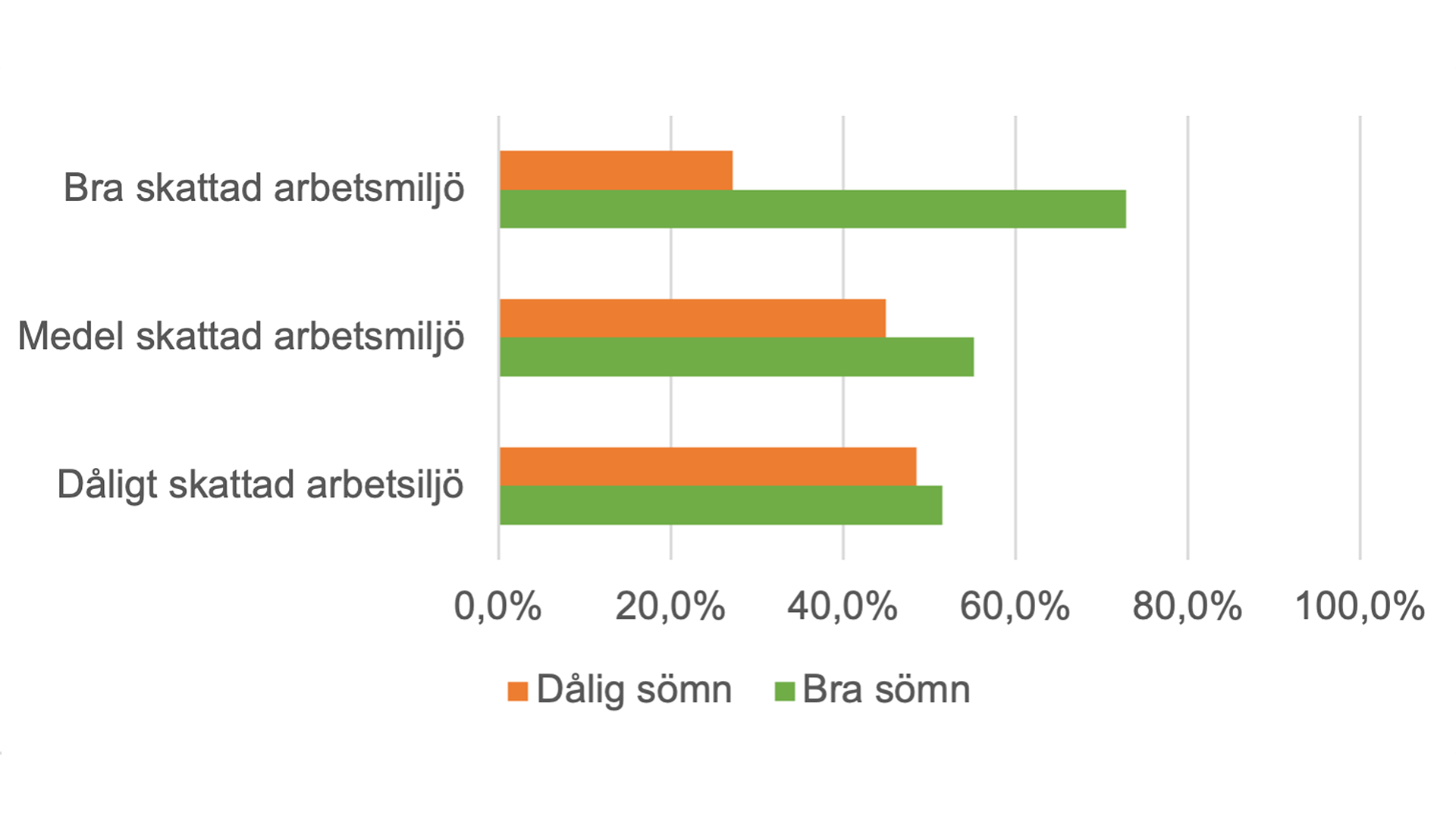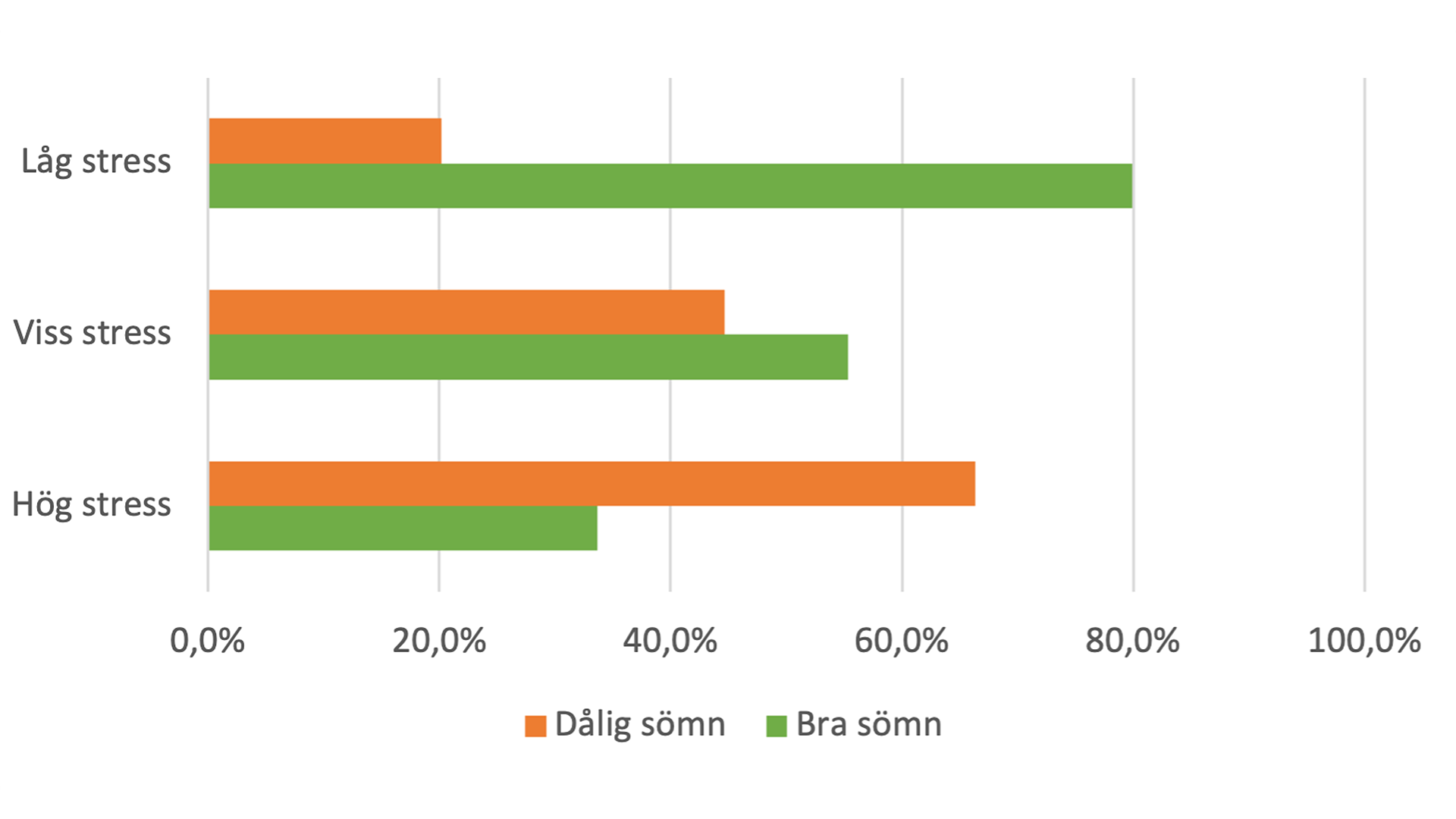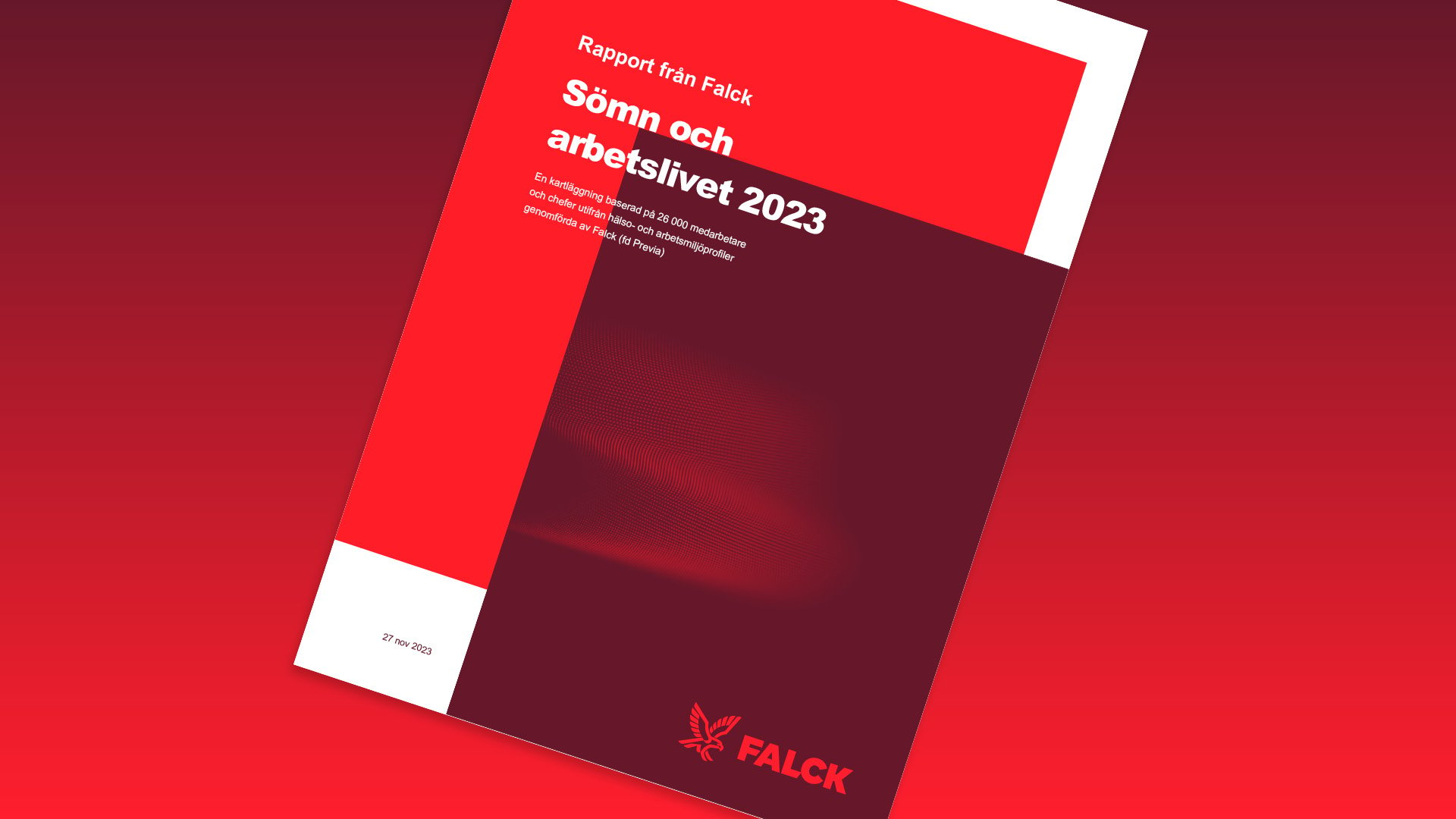Press release
Report: Stress and poor work environment ruin sleep
20221127: Half of those who rate their work environment as poor also sleep poorly. Likewise, those who are stressed show significantly poorer sleep. This is shown in the new report "Sleep and working life 2023" from Falck (formerly Previa). The report is based on nearly 26,000 employees across the country.
The report "Sleep and working life 2023" shows that, overall, three out of ten sleep so poorly that it can pose health risks. Women generally sleep worse than men – even if the aspect of children at home is removed. Only 57% of women are satisfied with their sleep. At the same time, research shows that a lack of sleep poses health risks.
– We see that almost 30% rate their sleep as so poor that it can lead to health risks mentally, medically or physically, says Åsa Miemois, health developer at Falck.

– Sleep is our greatest source of recovery, but during shorter periods, we can often draw strength and recovery from other aspects in life. The problem becomes when we sleep poorly a lot of the time. Then other restorative activities are not enough, instead we generally become more and more tired and it affects us both mentally, medically and physically, says Åsa Miemois.
In a cross-analysis of the organizational and social work environment and sleep, statistics show that those who experience their work environment as poor sleep significantly worse. Of those who have a good work environment, 27% sleep poorly, while almost one in two who have a poorly rated work environment also sleep poorly.

– We are at our workplace or working somewhere else for a large part of our days. How we experience our work environment therefore affects several aspects of our lives. Work can give a lot of energy but also take a lot of energy, and here we clearly see a connection between good perceived work environment and better sleep, says Åsa Miemois.
A similar cross-analysis, statistics show that those who have a stress level that entails risks of ill health sleep significantly worse. Of those who report a low level of stress, one in five sleep poorly. Among those with high stress, two out of three sleep poorly.
– This may not be news, but it is a finding that stress levels affect sleep and sleep quality. "A good day gives a good night and a good night gives a good day" is a saying and there is probably something in it. If we're in high gear with a lot of stress hormones in the body all day and few or no breaks of recovery, it's harder for the body to wind down at bedtime, says Åsa Miemois.

– Stress provides both a physical wind-up where relaxation and physical cool-down is needed to sleep well, but today many people are also affected by a mental stress with a lot of thoughts and worries and other things spinning in their heads, and it can be difficult to find strategies to recover the brain from all the impressions, which would also facilitate a good night's sleep, says Åsa Miemois.
Whether you are a manager or an employee does not seem to have a major impact on sleep.
Overall, women generally sleep worse than men. A total of 34.9% of women have sleep habits that may pose health risks, while the corresponding figure for men is 27.8%. Even when the aspect of children at home is excluded, women sleep worse than men.
More than a third are not satisfied with their sleep overall. Men are more satisfied with their sleep than women. Only just over half of women are satisfied with their sleep. Overall, there is no major difference in perceived satisfaction with sleep for those who have children at home and those who do not.
Read the report
Download Falck (formerly Previa's report) " Sleep and working life 2023"
The report "Sleep and working life 2023" is based on 25,774 health and work environment profiles carried out from the first of October 2022 to the end of September 2023.

About Falck
With 1,000 experts at nearly 100 units across the country, Falck is Sweden's most complete provider of health and working life services. We offer occupational health care, crisis and personnel support, organisational and leadership development, transition and career services, as well as primary health care and health services for private individuals. Falck's services in health and working life reach 1.2 million people all over Sweden and contribute to a sustainable working life and private life for all.
Sweden's largest occupational health service, Previa, has been part of the Falck Group since 2014. In January 2023, Previa ceased to exist as a brand, and the former Previa is now fully known as the Falck brand.
For more information, please contact
Sandra Ahlstrand, Communications Officer, +46 (0)70 635 89 62, sandra.ahlstrand@falcksverige.se
Peter Skald, Head of Communications, +46 (0)70 413 0813, peter.skald@falcksverige.se